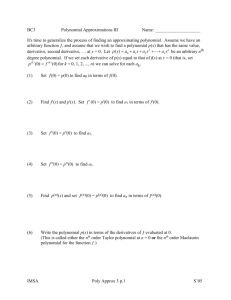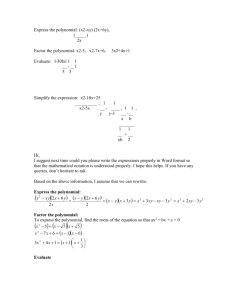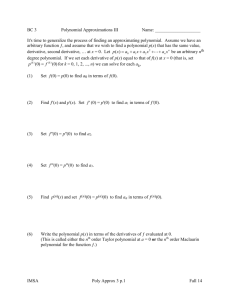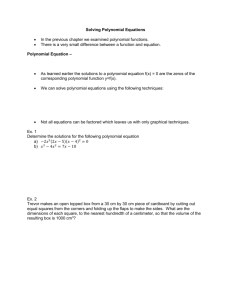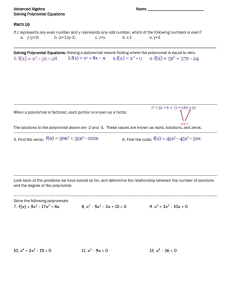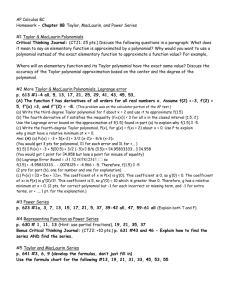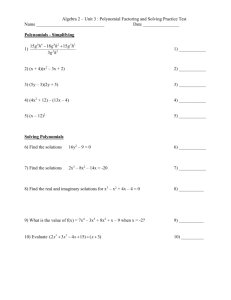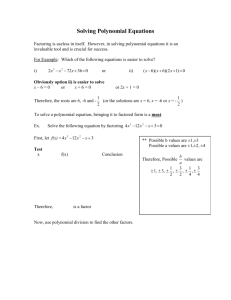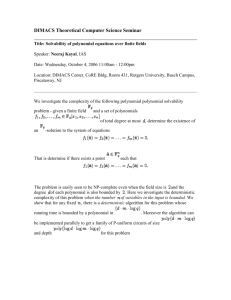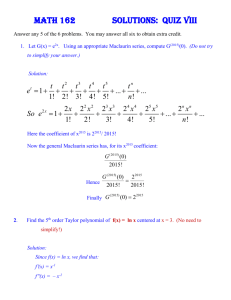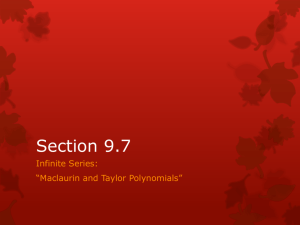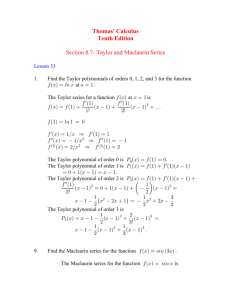Taylor Polynomial of degree n about x = a
advertisement
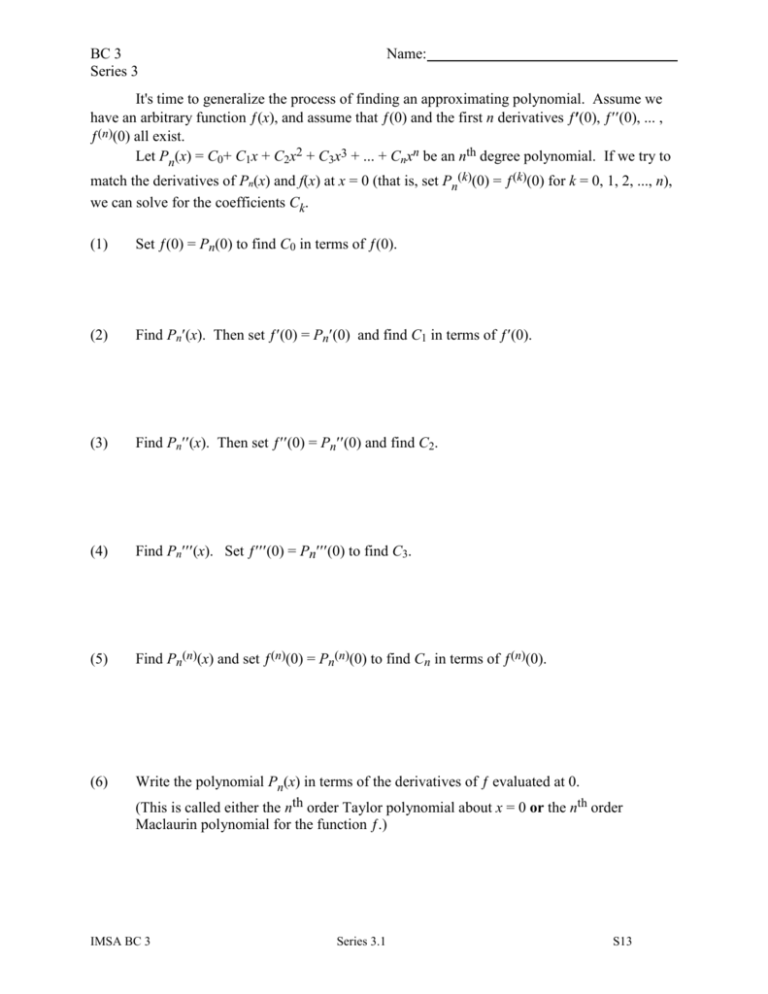
BC 3 Series 3 Name: It's time to generalize the process of finding an approximating polynomial. Assume we have an arbitrary function ƒ(x), and assume that ƒ(0) and the first n derivatives ƒ(0), ƒ(0), ... , ƒ(n)(0) all exist. Let Pn(x) = C0+ C1x + C2x2 + C3x3 + ... + Cnxn be an nth degree polynomial. If we try to match the derivatives of Pn(x) and f(x) at x = 0 (that is, set Pn(k)(0) = ƒ(k)(0) for k = 0, 1, 2, ..., n), we can solve for the coefficients Ck. (1) Set ƒ(0) = Pn(0) to find C0 in terms of ƒ(0). (2) Find Pn(x). Then set ƒ(0) = Pn(0) and find C1 in terms of ƒ(0). (3) Find Pn(x). Then set ƒ(0) = Pn(0) and find C2. (4) Find Pn(x). Set ƒ(0) = Pn(0) to find C3. (5) Find Pn(n)(x) and set ƒ(n)(0) = Pn(n)(0) to find Cn in terms of ƒ(n)(0). (6) Write the polynomial Pn(x) in terms of the derivatives of ƒ evaluated at 0. (This is called either the nth order Taylor polynomial about x = 0 or the nth order Maclaurin polynomial for the function ƒ.) IMSA BC 3 Series 3.1 S13 Maclaurin Polynomial of degree n (Taylor Polynomial about x = 0) f ¢¢(0) 2 f ¢¢¢(0) 3 f ( n) (0) n f (0) + f ¢(0) × x + ×x + × x + ...+ ×x = 2! 3! n! n å k=0 f (k ) (0) k ×x k! Taylor Polynomial of degree n about x = a f ¢¢(a) f ( n) (a) 2 f (a) + f ¢(a) ×(x - a) + ×(x - a) + ... + ×(x - a)n = 2! n! n å k=0 f (k ) (a) k × ( x - a) k! (1) Use this process to find the Maclaurin polynomial for ƒ(x) = ex when n = 4. (2) Use this process to find the Taylor polynomial for ƒ(x) = ln(x) about x = a = 1 when n = 3. (How does this compare to your work on Series 1?) IMSA BC 3 Series 3.2 S13
